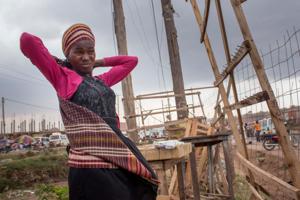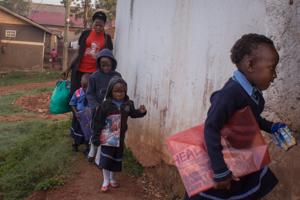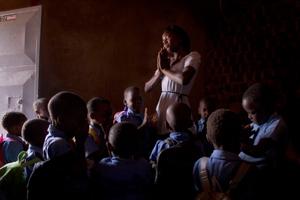Public Story
Moonlighting
rise, and the problem is exacerbated by a large young population, weak national labour
markets, and persistent poverty. Youth unemployment in Uganda is one of the highest in
Africa. Uganda also has the second-largest percentage of young people in the whole world.
to Action Aid, in 2012 six in every 10 Ugandans were unemployed. Many lack the skills employers need, but the core problem is that the economy is not expanding as fast as the labor force.
This situation forces citizens to seek new opportunities, surrendering themselves to labour exporters who range from legitimate businesses all the way to traffickers. These companies send workers to Middle-Eastern and Asian countries where they are all too often subjected to inhumane conditions, and when they return home it is hard for them to get back into the formal job market so their savings if they have any, are quickly used up. Soon they end up where they started, struggling to earn a decent living. Since the informal sector in
Uganda has always been a major source of employment for the population, many of them
pick it up from there.
Annet Balondemu Rachel is a 33-year-old single mother of three. She worked in the
Sultanate of Oman as a domestic worker until she was deported after complaining of being physically abused. She was unable to seek justice as Oman’s labour law excludes domestic workers from its protections, so those who flee abuse have little avenue for redress.
“I can’t talk about it. What happened in Oman was not good at all”, she tells me. Trying to get back on her feet, she has immersed herself in a range of jobs to try to make ends meet.
She works as a street vendor, a nursery school teacher and a church leader, rushing between workplaces throughout the day in an endless rhythm, with often only a change of shoes to mark the new role. She is passionate about teaching and is employed at an informal nursery school for half of each day before collecting her stock and walking to the nearby trading centre where she sets up a small stall with toiletries and sweets for pedestrians walking by. At the end of the week, she is part of a community church, where she leads the congregation in prayer.
She takes most of her earnings back home to Jinja, some 80 kilometres from
Kampala, where her children stay with their grandmother. She tries to go as often as possible to check up on her children’s school progress, but the visits are always too brief as she rushes back to the city and to her many jobs. She and many like her inhabit a world that hides in plain sight, full of familiar gestures but temporary and always uncertain. Roadsides become workplaces, empty plots sprout churches and half-built buildings house schools as a generation fights not to be swept away by the pace of progress.

















